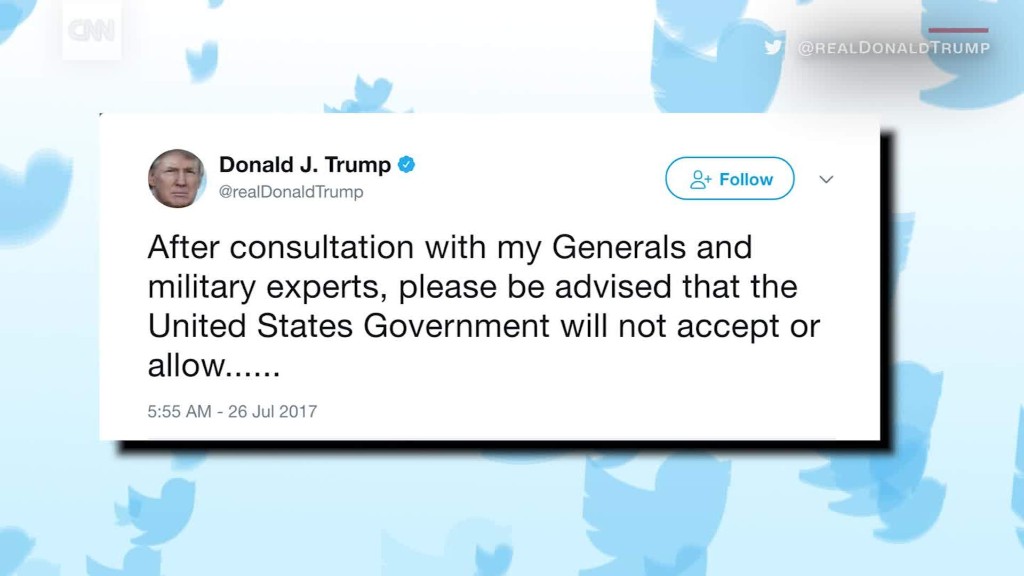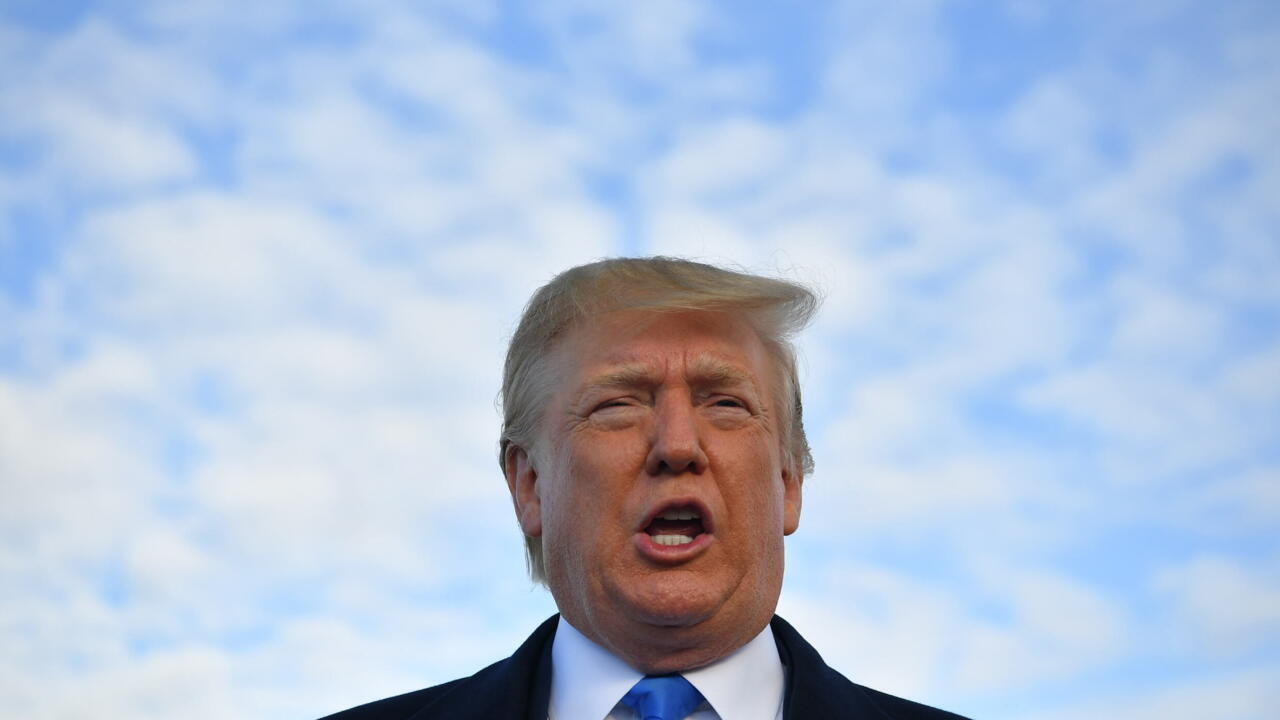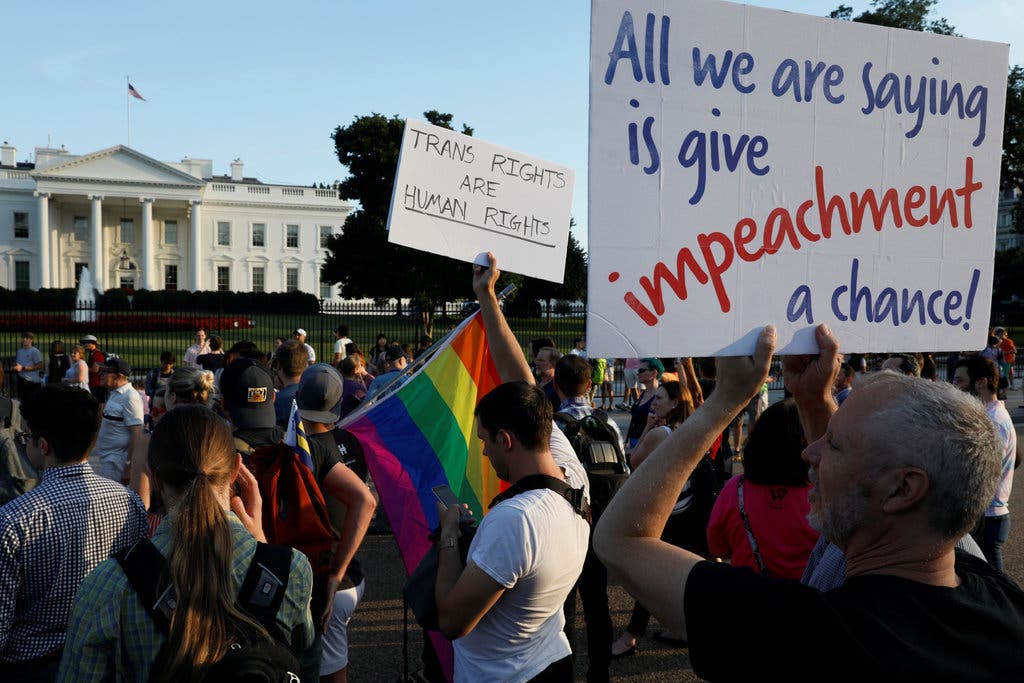Trump's Transgender Military Ban: Decoding The Double-Speak

Table of Contents
The Official Justification: National Security Concerns
The Trump administration's official justification for the transgender military ban centered on concerns about national security, specifically citing potential disruptions to unit cohesion, combat readiness, and excessive healthcare costs. However, a closer examination reveals a lack of substantial evidence supporting these claims.
-
Lack of Evidence on Combat Readiness: No credible evidence demonstrates that transgender service members negatively impact combat readiness. Numerous studies and reports from other militaries, such as the Canadian Armed Forces, showcase successful integration of transgender individuals without compromising operational effectiveness. The argument presented was largely based on unsubstantiated assertions rather than concrete data.
-
Unit Cohesion Concerns Debunked: The claim that transgender individuals negatively affect unit cohesion is similarly unsubstantiated. Many military experts and researchers argue that factors like leadership, training, and overall unit culture are far more significant determinants of cohesion than the gender identity of individual service members. Focusing on transgender individuals as a threat to cohesion deflects attention from these more crucial elements.
-
Healthcare Costs: A Misrepresentation: The projected increase in healthcare costs associated with transgender service members was vastly overstated and disproportionate to the overall military budget. The cost of providing gender-affirming care is relatively small compared to the vast expenditures on other aspects of military healthcare. This argument employed a tactic of exaggerating costs to create a misleading narrative.
-
Selective Use of Data and Statistics: The administration selectively used data and statistics, highlighting isolated incidents while ignoring the broader context and overwhelming evidence of successful integration in other armed forces worldwide. This manipulation of facts served to bolster the narrative against transgender service members.
The Rhetorical Strategies Employed: Analyzing the Double-Speak
The rhetoric surrounding the ban utilized various rhetorical strategies to justify the discriminatory policy. These strategies often employed appeals to tradition, fear-mongering, and generalizations, creating a narrative that framed transgender individuals as a threat.
-
Inflammatory Language and Dehumanization: The language used to describe transgender individuals was frequently inflammatory and dehumanizing, fostering prejudice and undermining the dignity of these individuals. Terms designed to create fear and division were strategically employed.
-
Selective Use of Statistics and Misinformation: The administration selectively used statistics and perpetuated misinformation, misrepresenting the realities of transgender service members and their impact on the military. This deliberate distortion of facts played a crucial role in justifying the ban.
-
Appeals to Emotion and Fear-Mongering: The rhetoric often appealed to emotions and used fear-mongering tactics to sway public opinion against transgender individuals. This approach circumvented rational discussion and fueled harmful stereotypes.
-
Appeals to Tradition and Conservative Values: Arguments frequently invoked traditional military norms and conservative values to justify the exclusion of transgender individuals, ignoring the evolving understanding of gender and the need for inclusivity in modern armed forces.
Legal Challenges and Subsequent Developments
The transgender military ban faced significant legal challenges from LGBTQ+ advocacy groups and individuals directly affected by the policy. Numerous lawsuits were filed, arguing the ban violated constitutional rights.
-
Key Court Cases and Rulings: Several court cases saw victories for the plaintiffs, resulting in injunctions against the enforcement of the ban in various instances. These rulings highlighted the legal flaws in the administration's arguments.
-
Role of LGBTQ+ Advocacy Groups: Organizations like the American Civil Liberties Union (ACLU) played a crucial role in challenging the ban through legal action and public advocacy. Their efforts significantly contributed to the eventual reversal of the policy.
-
Biden Administration's Reversal: Upon taking office, the Biden administration promptly reversed the transgender military ban, demonstrating a commitment to inclusivity and equality within the armed forces.
-
Impact on Transgender Service Members: The reversal has had a profoundly positive impact on transgender service members, allowing them to serve openly and without fear of discrimination. Statistics now indicate a significant increase in the number of transgender individuals serving openly in the military since the ban's repeal.
The Broader Context: LGBTQ+ Rights and Military Service
The transgender military ban must be understood within the broader context of LGBTQ+ rights in the military and society. It represents a setback in the ongoing struggle for equality and inclusion.
-
"Don't Ask, Don't Tell" and Its Repeal: The ban echoes the "Don't Ask, Don't Tell" policy, which prohibited openly gay and lesbian individuals from serving. The repeal of "Don't Ask, Don't Tell" demonstrated a step forward for LGBTQ+ inclusion; the transgender ban represented a regression.
-
Impact on Military Morale and Readiness: The ban negatively impacted military morale and readiness by fostering a climate of discrimination and exclusion. Creating an inclusive environment is vital for fostering a strong and effective military force.
-
Importance of Inclusivity: The inclusion of transgender individuals, and all LGBTQ+ individuals, is crucial for creating a diverse and representative military that reflects the values of a modern and inclusive society.
Understanding Trump's Transgender Military Ban: A Call for Continued Dialogue
In conclusion, the Trump administration's transgender military ban was based on unsubstantiated claims and employed manipulative rhetorical strategies. The legal challenges and the Biden administration's reversal underscore the unjust nature of the policy. This episode highlights the ongoing struggle for transgender inclusion and LGBTQ+ equality in the military. We must continue the dialogue surrounding military policy reform, ensuring that all qualified individuals, regardless of gender identity, have the opportunity to serve their country. Further research into the impact of inclusive military policies, combined with ongoing advocacy for transgender rights, is crucial for fostering a more just and equitable military. Let's continue the fight for transgender inclusion and LGBTQ+ equality within the armed forces.

Featured Posts
-
 Trump Tariffs Weigh On Infineon Ifx Sales Outlook
May 10, 2025
Trump Tariffs Weigh On Infineon Ifx Sales Outlook
May 10, 2025 -
 Slovenska Dakota Johnson Neuveritelna Podobnost S Hollywoodskou Hviezdou
May 10, 2025
Slovenska Dakota Johnson Neuveritelna Podobnost S Hollywoodskou Hviezdou
May 10, 2025 -
 Navigating The New Landscape Chinas Canola Import Strategy
May 10, 2025
Navigating The New Landscape Chinas Canola Import Strategy
May 10, 2025 -
 How Elon Musk Made His Billions A Deep Dive Into His Financial Success
May 10, 2025
How Elon Musk Made His Billions A Deep Dive Into His Financial Success
May 10, 2025 -
 Analysis Of Trumps Transgender Military Ban Beyond The Rhetoric
May 10, 2025
Analysis Of Trumps Transgender Military Ban Beyond The Rhetoric
May 10, 2025
